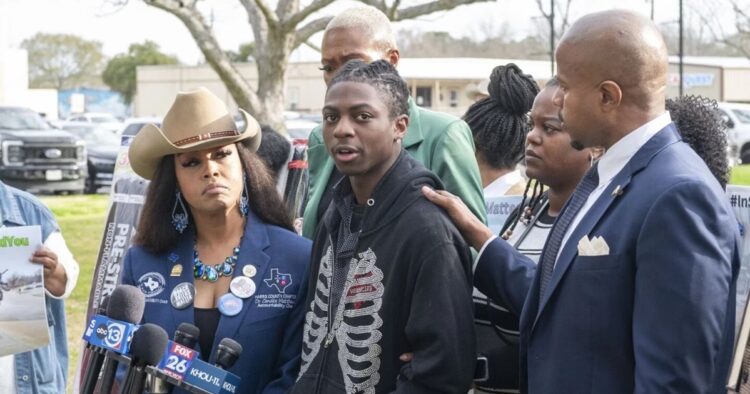In a recent ruling, a Texas judge sided with Barbers Hill school district, stating that their policy on hair length does not violate the state’s new law against race-based hair discrimination. The case centered around Darryl George, an 18-year-old Black student, who has been out of his regular high school classes since August due to his refusal to change his hairstyle.
The district argued that George’s tied and twisted locs violated its dress code as they fell below his shirt collar, eyebrows, or earlobes when let down. Despite the CROWN Act, a law implemented in September to prevent race-based hair discrimination, the judge ruled in favor of the school district, asserting that the law does not explicitly mention exemptions for long hair, including locs.
George’s attorney plans to appeal the decision and is also pursuing legal action at the federal level. George’s family has filed a formal complaint with the Texas Education Agency and a federal civil rights lawsuit against various authorities, alleging a failure to enforce the CROWN Act.
Throughout the school year, George has faced in-school suspension or attended off-site disciplinary programs. The district defended its position, stating that their dress code does not violate the CROWN Act and does not permit unlimited self-expression.
Despite efforts by George’s legal team and supporters, including Democratic state Rep. Ron Reynolds, who testified on George’s behalf, the ruling disappointed many. Reynolds expressed his intention to propose a new version of the CROWN Act specifically mentioning protections for hair length.
In response to allegations of racism, Barbers Hill Superintendent Greg Poole defended the district’s dress code, emphasizing the importance of conformity for being an American. He asserted that claims of racism undermine efforts to address violations of constitutionally protected rights.
This ruling comes amidst ongoing challenges to Barbers Hill’s hair policy. In a separate federal lawsuit filed in May 2020 by two other students, one student returned to the high school after a federal judge granted a temporary injunction, citing concerns over free speech and racial discrimination.
The case highlights the complexities surrounding dress codes, individual expression, and discrimination in educational institutions, sparking broader conversations about equality and cultural acceptance.

















Comments